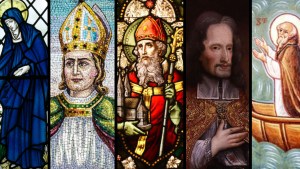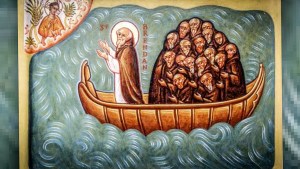The sacrament of confession has a rich history in the Catholic Church, one that included the public confession of sins. This was very common throughout Christendom until Irish missionaries started to spread a unique practice that was inspired by Egyptian monks.
The Catechism of the Catholic Church offers a succinct history of the sacrament of confession, explaining how, “During the first centuries the reconciliation of Christians who had committed particularly grave sins after their Baptism (for example, idolatry, murder, or adultery) was tied to a very rigorous discipline, according to which penitents had to do public penance for their sins, often for years, before receiving reconciliation. To this ‘order of penitents’ (which concerned only certain grave sins), one was only rarely admitted and in certain regions only once in a lifetime” (CCC 1447).

Read more:
5 Irish saints who changed the world
While this was common practice in Europe, a separate tradition began to develop in the Egyptian desert. It was there that Egyptian monks began to assemble together to build monastic communities and within those communities they developed a distinctive way of confessing sins.
St. John Cassian in particular promoted a form of private confession that he learned from these desert monks and took it with him when founding a monastery in France. Cassian’s writings were later taken to Ireland and it is there that they found fertile soil.
In Ireland, monks built upon the foundations of Cassian and developed a system of confession that was entirely private, including the private recitation of sins and the private performance of penance. While it is true that private confession existed from the very beginning of the Church, it wasn’t utilized for all sins until the influence of Irish monks.
The Irish also developed the tradition of a “soul friend,” or anamchara in Gaelic. This was essentially a private spiritual director, with whom you shared all of your struggles and sins.
It was during the 7th century that Irish monks started to take these traditions of confession to Europe. As the Catechism narrates, “During the seventh century Irish missionaries, inspired by the Eastern monastic tradition, took to continental Europe the ‘private’ practice of penance, which does not require public and prolonged completion of penitential works before reconciliation with the Church. From that time on, the sacrament has been performed in secret between penitent and priest” (CCC 1447).
The Church has grown in her understanding of the sacrament of confession over the years, but much of what we experience today is due to the influence of Irish monks.
Thank the Irish!

Read more:
Did St. Brendan discover America in the 6th century?

